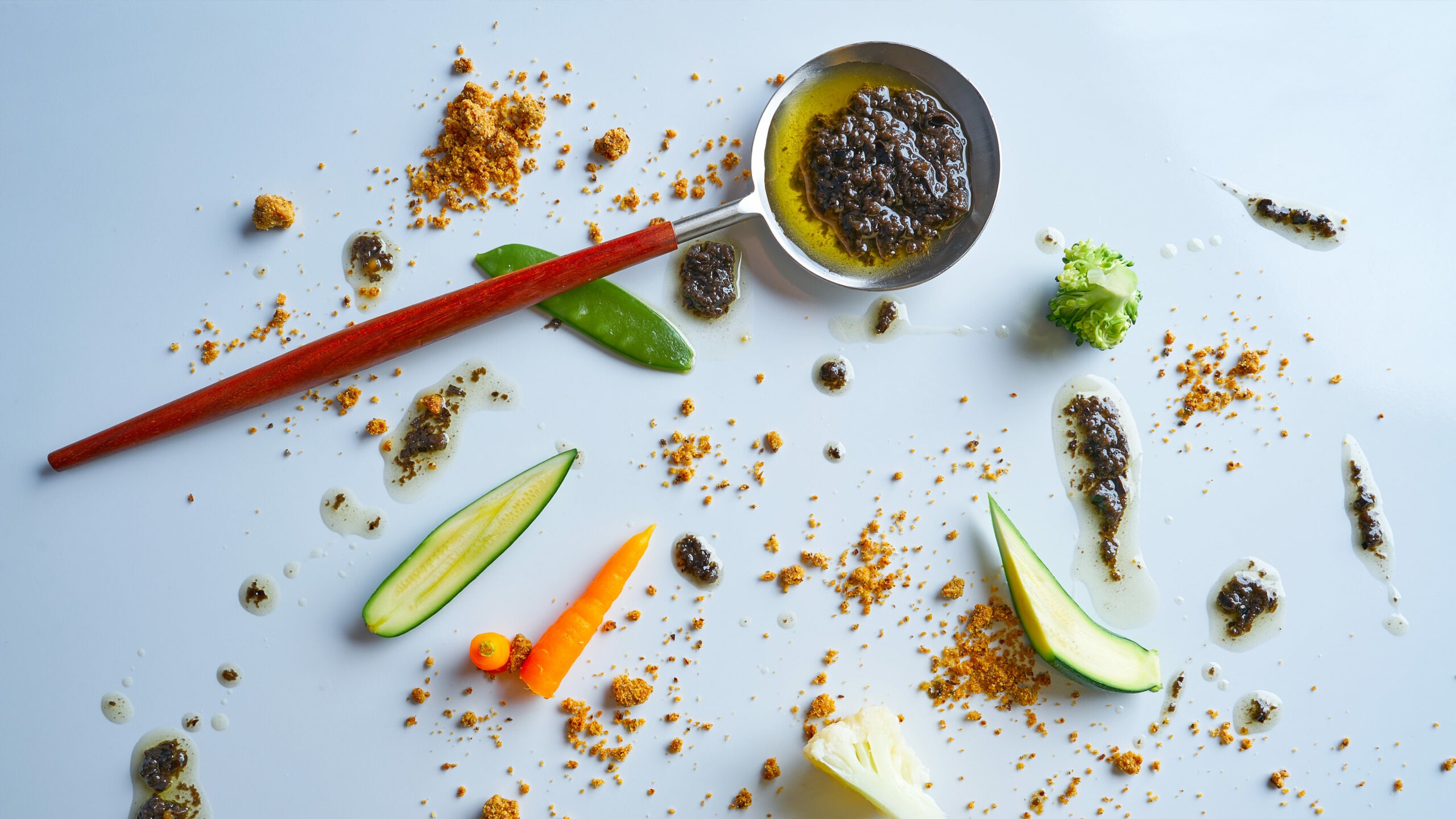Every year on 18 June, Sustainable Gastronomy Day invites the global community to reflect on the intertwined destinies of cuisine, culture, and ecological integrity.
At the heart of this celebration lies a question that extends far beyond the plate: How do our food choices reverberate through the invisible ecosystems of the human gut?
Sustainable dietary patterns – exemplified by the Mediterranean diet and the EAT‑Lancet Planetary Health Diet – prioritise minimally processed, plant‑forward fare while curbing the environmental burden of red‑meat production.
These predominantly botanical menus translate not only into lower greenhouse‑gas emissions and improved soil stewardship but also into striking shifts in the gut microbial consortia that govern digestion, immunity, and even neurobehavioural axes (Rehner et al., 2023).
Trillions of microbial residents inhabit the gastrointestinal tract, forming complex trophic networks that ferment indigestible polysaccharides into short‑chain fatty acids (SCFAs). Butyrate, propionate, and acetate generated by Bacteroidetes and Firmicutes taxa fuel colonocytes, tighten epithelial junctions, and calibrate systemic inflammation (Graf et al., 2015).
Plant‑centric diets rich in diverse fibers provide the substrate breadth required to sustain these biochemical symphonies.
Lares‑Michel et al. (2023) synthesised metagenomic evidence showing that adherence to sustainable dietary indices increases alpha diversity and enriches Faecalibacterium prausnitzii and Akkermansia muciniphila – hallmark taxa linked to anti‑inflammatory signalling.
Their narrative review further highlighted the expansion of carbohydrate‑active enzyme gene families responsible for hemicellulose and resistant‑starch breakdown, underscoring an adaptive mutualism between diet and microbiota.
Complementing these findings, Rehner et al. (2023) conducted a descriptive analysis of individuals transitioning to the Planetary Health Diet.
Within four weeks, shotgun sequencing revealed heightened gene abundance for butyrogenic pathways alongside a measurable rise in faecal butyrate, suggesting a rapid, diet‑driven recalibration of microbial metabolism. Such temporal plasticity mirrors earlier observations by David et al. (2014), who demonstrated that macronutrient shifts can remodel the microbiome within twenty‑four hours.
Microbiome‑mediated SCFAs extend their influence beyond the gut.
They traverse the portal vein to orchestrate hepatic gluconeogenesis, modulate adipose inflammation, and engage G‑protein‑coupled receptors implicated in appetite regulation (Maslowski & Mackay, 2011).
Consequently, sustainable gastronomy not only mitigates climate impact but also fortifies metabolic resilience through microbial intermediaries.
Fiber diversity is pivotal. Singh et al. (2017) emphasized that chemically heterogeneous fibers – arabinoxylans, β‑glucans, inulins – support niche partitioning among saccharolytic guilds, preventing dominance by opportunistic pathogens.
Dietary monotony, by contrast, narrows ecological niches and predisposes to dysbiosis.
Cultural gastronomy offers an additional layer of complexity.
Traditional fermentation practices – think kimchi, tempeh, or sourdough – seed live microbes and bioactive peptides that complement endogenous communities.
Nagpal et al. (2019) illustrated how Mediterranean staples such as olive oil and fermented dairy synergistically elevate gut microbial richness, suggesting that culinary heritage and sustainability are not mutually exclusive but mutually reinforcing.
From a planetary perspective, shifting protein sources from industrial beef to legumes can cut agricultural land use by up to 80 %, while simultaneously delivering fermentable oligosaccharides that nurture Bifidobacterium spp. (Lares‑Michel et al., 2023).
Thus, the same dietary pivot that restores biodiversity in soils appears to cultivate biodiversity within us.
In sum, Sustainable Gastronomy Day symbolises more than a culinary fête; it marks an ecological and microbiological covenant between humanity and the biosphere.
By embracing plant‑centred, culturally attuned diets, we nourish not only our palates and planet but also the teeming microbial metropolis within.
References:
David, L. A., Maurice, C. F., Carmody, R. N., Gootenberg, D. B., Button, J. E., Wolfe, B. E., Ling, A. V., Devlin, A. S., Varma, Y., Fischbach, M. A., Biddinger, S. B., Dutton, R. J., & Turnbaugh, P. J. (2014). Diet rapidly and reproducibly alters the human gut microbiome. Nature, 505(7484), 559–563. https://doi.org/10.1038/nature12820
Graf, D., Di Cagno, R., Fåk, F., Flint, H. J., Nyman, M., Saarela, M., & Watzl, B. (2015). Contribution of diet to the composition of the human gut microbiota. Microbial Ecology in Health and Disease, 26, 26164. https://doi.org/10.3402/mehd.v26.26164
Lares‑Michel, M., Reyes‑Castillo, Z., & Housni, F. E. (2023). Towards the characterisation of sustainable diet’s gut microbiota composition and functions: A narrative review. Gut Microbiome, 4, e15. https://doi.org/10.1017/gmb.2023.13
Maslowski, K. M., & Mackay, C. R. (2011). Diet, gut microbiota and immune responses. Nature Immunology, 12(1), 5‑9. https://doi.org/10.1038/ni0111‑5
Nagpal, R., Shively, C. A., Register, T. C., Craft, S., & Yadav, H. (2019). Gut microbiome–Mediterranean diet interactions in improving host health. F1000Research, 8, 699. https://doi.org/10.12688/f1000research.18992.1
Rehner, J., Schmartz, G. P., Kramer, T., Keller, V., Keller, A., & Becker, S. L. (2023). The Effect of a Planetary Health Diet on the Human Gut Microbiome: A Descriptive Analysis. Nutrients, 15(8), 1924. https://doi.org/10.3390/nu15081924
Singh, R. K., Chang, H. W., Yan, D., Lee, K. M., Ucmak, D., Wong, K., … Liao, W. (2017). Influence of diet on the gut microbiome and implications for human health. Journal of Translational Medicine, 15(1), 73. https://doi.org/10.1186/s12967‑017‑1175‑y

